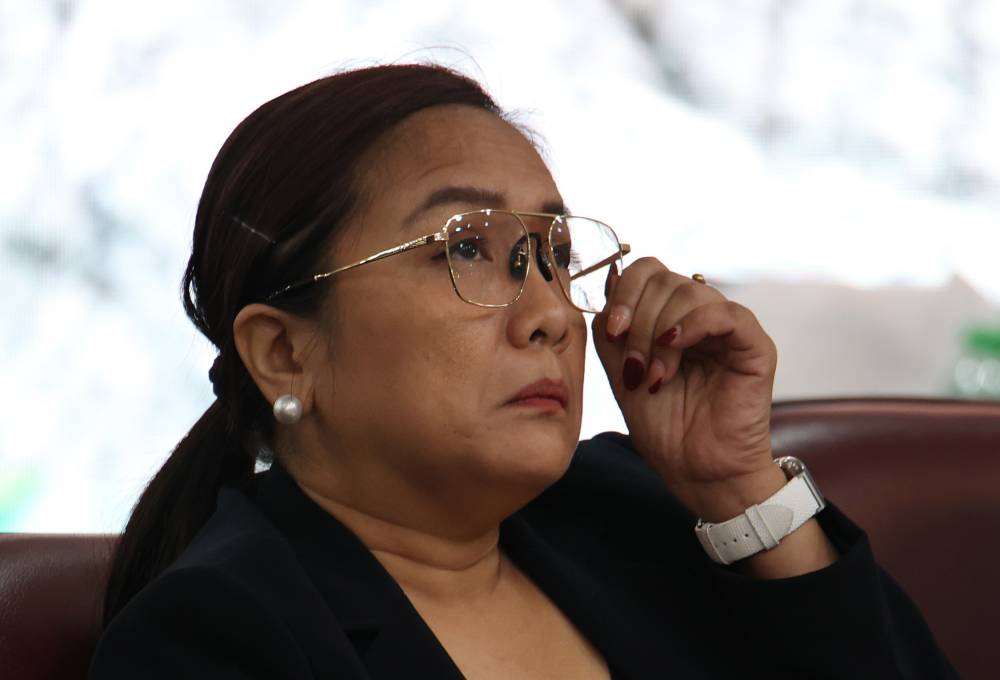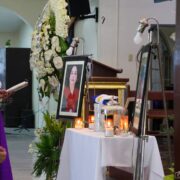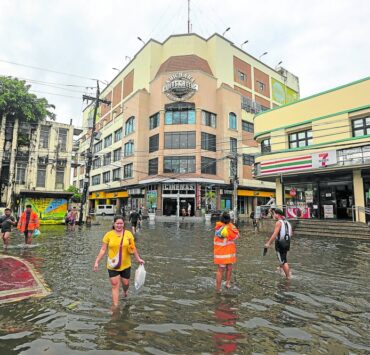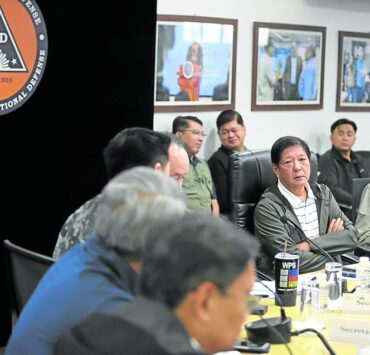Garma says Du30 called her up after expose — to explain

After her bombshell testimony last week, retired police colonel Royina Garma got a phone call from her former commander in chief whose scheme she had just exposed. But instead of issuing a denial or giving her an angry rebuke, he contacted her just to partly explain his actions.
In her continuing testimony before the House quad committee, Garma said former President Rodrigo Duterte called her up on Oct. 17 or six days after she gave confirmed the existence of a reward system behind his brutal war on drugs.
But Garma said the ex-president did not ask her to stop or retract her expose, but “merely explained why he wanted an Iglesia ni Cristo (INC) police officer” to be part of the crackdown.
“(Duterte) just said it’s because INC members can be entrusted with money,” she said in reply to questions from ACT Teachers Rep. France Castro
Tuesday night’s revelation was the latest Garma made in the House inquiry on the Duterte drug war.
After the first few hearings where she denied wrongdoing, mainly in the killing of three Chinese drug convicts in 2016, she issued a statement on Oct. 11 confirming the financial incentives involving the police and hired hit men to have drug suspects killed.
According to Garma, who once served in the Davao City police, Duterte asked her to help scale up the so-called Davao template of the drug war to the national level, and also find a police official who was also INC member for its implementation.
Implication
At Tuesday’s hearing, Garma said these instructions led her to Edilberto Leonardo, her former police academy classmate.
“So by inductive reasoning, Mr. Chair, Col. Leonardo can be trusted with money. That’s the implication,” Castro said.
Leonardo recently resigned as head of the National Police Commission after his name cropped up in the House probe. Referring to the phone call she got from the former president, Garma admitted that she had apologized to Duterte for her testimony last week.
To this Castro remarked: “If anything, it should be him who should be saying sorry to the thousands of people, the youth, the innocent people he had killed.” Duterte, 79, was invited to Tuesday’s hearing but sent a letter to the committee saying he could not attend because of health reasons.
‘Culture of silence’
Also on Tuesday night, Garma submitted a supplemental affidavit to the committee confirming the existence of the Davao Death Squad (DDS).
Named after Duterte’s home city where was mayor for many years, the DDS come to be known to be behind the killings of drug suspects in the city. Garma said she became aware of the DDS “through various sources during my assignment in Davao.”
“It was common knowledge among officers that almost all station commanders had special teams designated for specific operations. Although I did not know the identities of these teams, a culture of silence prevailed among police officers in Davao regarding such matters,” she said.
This “culture of silence,” Garma said, extended to police operations where drug suspects ended up dead, with little or no oversight over the conduct of the officers involved.
Her understanding of these operations, she said, further “solidified” when she was assigned as commander of Davao City’s Sasa and Sta. Ana police stations from 2012 to 2016. At the end of each month, she said, the commanders were required to submit reports on successful antidrug operations.
These reports were need to get “reimbursements” for operational expenses, like the buy-bust money and the cost of gasoline. The disbursement of the funds were facilitated by a certain “Muking.”
Member of Go staff
In the Oct. 11 hearing, “Muking” was identified by Garma as Irmina Espino, a staff member of Duterte’s longtime aide and now Sen. Christopher “Bong” Go.When Duterte became president and Go served as his special assistant, Espino reportedly continued to work for Go at the Palace, getting the rank of Assistant Secretary in his office.
For each operation, Garma said, the station commanders were reimbursed ₱5,000.
Having a drug suspect killed meant another P20,000 for them, and this money was coursed through one Sonny Buenaventura, “with no signed documentation required,” she said.
Citing one example, Garma recalled that in 2012 she received a call from Police Lt. Col. Padua, an intelligence officer working under then-Davao City Police Director Ronald “Bato” Dela Rosa, informing her of an upcoming operation in Barangay Malagamot,Hours later, she learned that a male suspect linked to a series of burglaries was killed. For that operation, she received P20,000 from an officer she identified as “Sgt. Suan” and “provided by Boy Alce.”
No clearance
Garma also cited a Davao police operation that killed another man, a known drug user and peddler, near the GT Gasoline Station in Panacan, an area under her station’s jurisdiction.
“I remember this person because, in the morning on the day he was killed, the desk officer on duty informed me that he went to my office and left an image of the Holy Family (and told) my men that he had just gone to Mass and was very happy,” Garma said. “A few hours later, he was dead.
”When Garma inquired about the operation, she was told by Suan that it was “coordinated by Alce”.“There was never any clearance from my office for this operation, neither was my office informed of it,” she said.

















